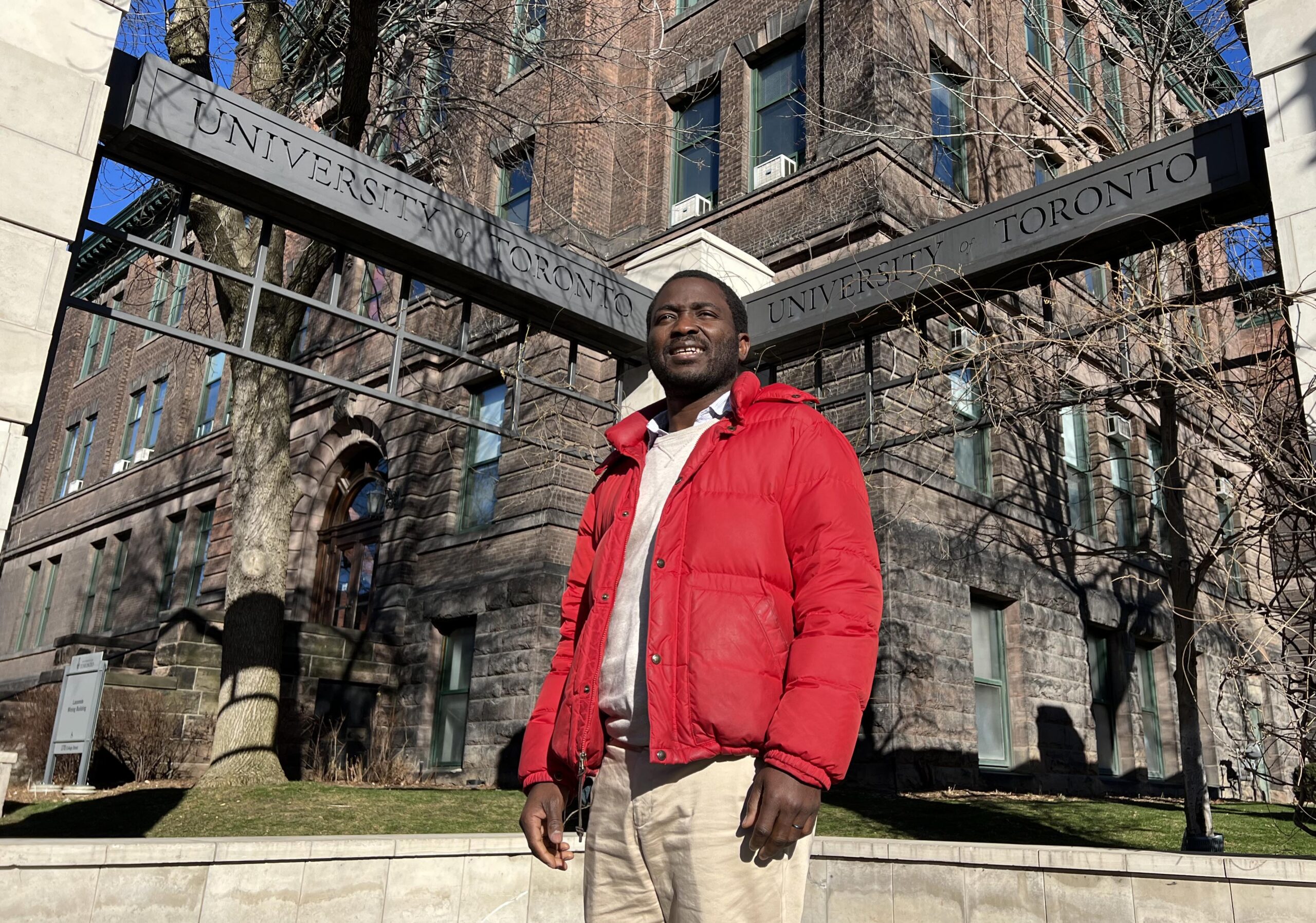
Professor Hamed Ibrahim joins the Department of Civil & Mineral Engineering as an Assistant Professor as of January 1, 2024.
CivMin spoke with Professor Ibrahim to learn more about his research direction, passion for teaching and what attracted him to Toronto. He has relocated from the U.S. to join our Department.
“We wholeheartedly welcome our newest faculty member to the Department,” says CivMin Chair Marianne Hatzopoulou offering her greetings. “Students will benefit from the exciting new elements Professor Ibrahim brings to the Department in teaching and research. Join us in offering our newest professor a warm welcome to CivMin.”
Q: Can you tell us a little about yourself as an introduction.
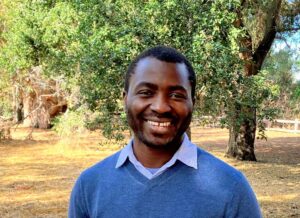
I was born in Lagos, Nigeria and spent my teenage years in the north central city of Lokoja, the confluence city where the Niger River meets its largest tributary, the Benue River. So, I have long had an interest in water and hydrology. After completing my secondary school studies in Ibadan, Nigeria, I moved to the U.S. where I completed my undergraduate and graduate studies and postdoctoral work.
Q: Could you explain the focus of your research?
My research is focused on understanding mechanisms of the hydrological cycle. I classify the temporal and geographical fluctuations of water and heat in this cycle in order to provide a scientific basis for regional water management and for adaptive design of built infrastructure in a changing climate.
Q: Why did you choose U of T?
I chose U of T for a few reasons: first, I have many family members who reside in Ontario and the northeast of the U.S., and proximity to them is important for me; second, Toronto is one of the most multicultural cities in the world and I am grateful to have the opportunity to add to, and learn from, the city’s diverse communities; third, U of T is a world-class institution where I can do groundbreaking and impactful work that will improve the world’s water condition.
Q: What are you most looking forward to in your new position?
I am looking forward to forming new partnerships and learning from students. The university is a fantastic place for exchanging and cross-pollinating ideas. Several of the threads in my career so far have resulted from chance encounters with people and ideas I followed up on. I am excited about this new opportunity.
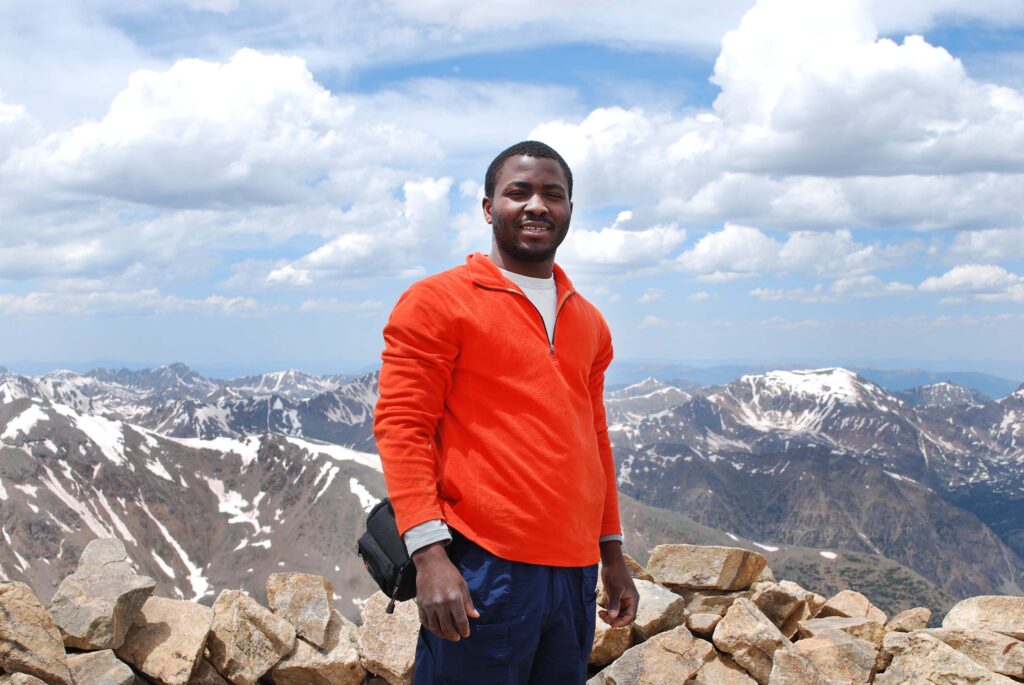
Q: As a new professor, what one piece of advice would you give to new students?
For most students, the period spent in the university is relatively short compared to their whole career. So, my one piece of advice is to embrace and take advantage of the brief opportunity to learn as much as possible while you are a student, which is a bit easier to do since the university has organized the different knowledge spheres: this organizing takes time to do after one leaves the university.
Q: What do you hope to accomplish in your new position/during your time at U of T Engineering?
I hope to tackle and find solutions to some of the world’s urgent water problems. Civilization primarily depends on exploiting water resources and avoiding water hazards. But these are challenging times regarding water resources: infrastructure is aging in many population centres, as is evident from recent dam failures and inadequate water supply, the global population is rising, cities are getting larger, and the global climate is changing with unknown consequences on regional water resources. My goal is to find adaptive solutions to urgent regional water problems and train the engineers and scientists who will continue this work in the coming century.
Q: What is the most memorable experience in your career so far?
Early in my PhD work, I developed a strategy to manage River Blindness, a vector-borne disease transmitted by blackflies. These flies like to breed in fast-flowing rivers and streams because their larvae feed by sifting moving water for food. I designed a micro-hydropower system to control blackfly population by diverting water, which decreases river flow velocity, to generate small amounts of electricity.
To show proof of this concept, I carried out a three-month research expedition to endemic remote farming villages in Tanzania in order to identify a suitable location to implement this control strategy. On each visit to a farming village, using a town hall meeting approach, I explained the purpose of my visit and the disease mechanism. I also described simple steps to reduce infection risk, such as wearing long sleeves and trousers and avoiding travel at sunset and sunrise when blackflies are more active.
After one such meeting, an individual walked up to thank me for visiting and for describing the disease mechanism, which will enable him to avoid blackfly bites and infection with the disease parasite. This was a significant moment in my own growth as an engineer and scientist. Until that moment I thought the micro-hydropower strategy was the only solution I could offer. I realized only then that the actionable information about the disease I provided to these communities is, in fact, a disease control strategy itself.
Q: Finally, is there anything fun/unusual/unexpected about yourself you’d like to share with our CivMin audience?
I like mountaineering and wilderness trekking in general. I have summited more than fifty of the tallest peaks in the conterminous U.S., so I am excited about the possibilities of exploring the Canadian outdoors.
~ CivMin
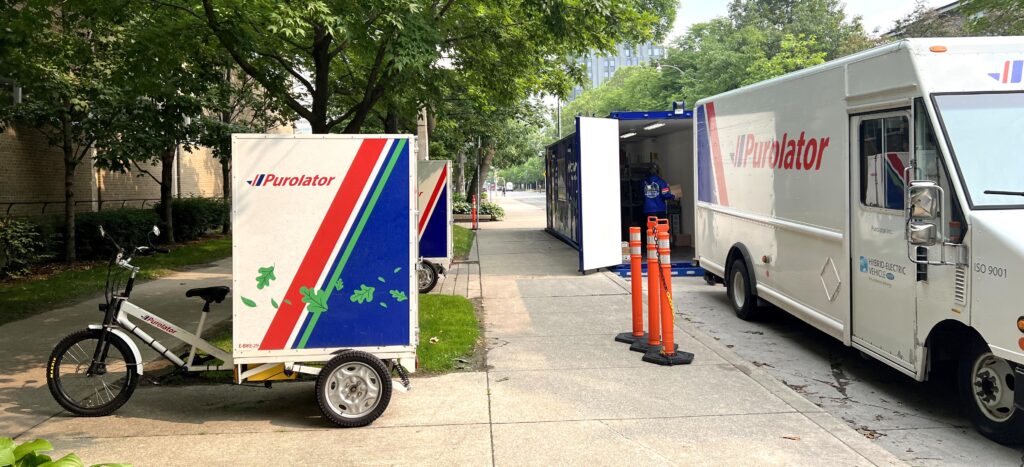
The Purolator Urban Quick Stop pilot project at U of T has received the 2023 ITE Toronto Project of the Year Award for an academic-industry-government partnership. The project involves swapping out large, gas-powered courier trucks for e-cargo tricycles in downtown Toronto hubs, as part of a "final mile" solution plan to reduce pollution for deliveries.
The award from the Institute for Transportation Engineers (ITE) Toronto Section saw Usman Ahmed, PhD (CivE PhD 2T2) and CivMin Professor Matthew Roorda accept the award on behalf of the Smart Freight Centre at the ITE Toronto Holiday Luncheon, held at York University on Thursday, December 14, 2023.
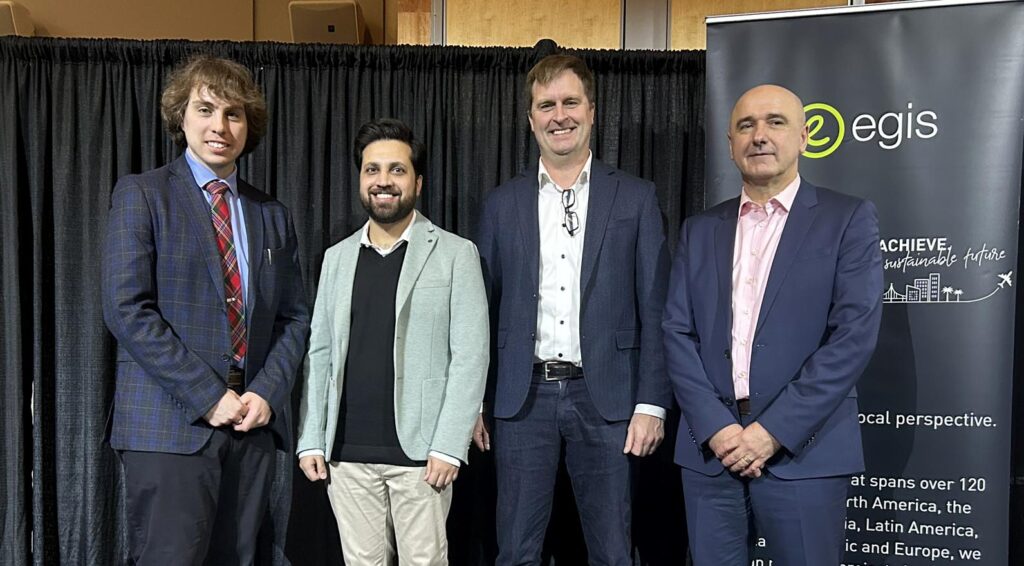
Dr. Ahmed, managing the research project from the U of T side, is a postdoctoral fellow. Prof. Roorda serves as Chair, Scientific Advisory Committee for the Smart Freight Centre (SFC), a collaborative research hub focused on improving the movement of goods across the Toronto Region. Launched in 2019 with support from the Dean’s Strategic Fund, the Smart Freight Centre includes members from several universities, as well as from government and industry. Within the SFC, the City Logistics for the Urban Economy (CLUE) group is a large funded project with 12 research sponsors and three universities; it has 24 subprojects with the e-cargo project as one of the projects.
Purolator replaced delivery trucks on the U of T St. George campus, and in neighbouring communities, with e-cargo tricycles operating from a microhub launched August 22, 2022,. This pilot project demonstrates the potential for e-cargo tricycle deliveries with potential expansion to other locations across Canada. It is built inside a standard 40-foot shipping container, fitting neatly into a parking space provided by the City of Toronto on St. George Street. It is the second Urban Quick Stop to open in Toronto, following an earlier installation on Spadina Road.

The endeavour has already demonstrated several benefits to society during its operation. First, researchers at U of T estimated a yearly reduction of about 2.7 to 3.4 tonnes of GHG and 7.8 to 9.8 kgs of NOx by replacing only one gasoline-powered truck. Second, it was found truck drivers were exposed to poorer air quality than the ambient air quality, which negatively affects driver’s health and is improved by using e-cargo tricycles. Third, using e-cargo tricycles eliminated truck conflicts and reduced the parking demand. Fourth, e-cargo tricycles have the potential to replace trucks without compromising operational efficiency. Fifth, the microhub, which also acts as a retail facility, is convenient for residents to drop off packages.
This award is given as a recognition for a significant achievement or contribution in the field of transportation engineering from the Toronto Section Area in the past year. The winning project adds to the state of the practice by demonstrating excellence and innovation in the field of Transportation. The ITE Toronto Section 2023 Project of the Year jury comprised six selected (volunteers) judges considered specialists in the field of Transportation that reviewed the nominated projects (submissions) and provided scores based on the evaluation criteria established by the ITE Toronto Section.
Find out more about this award on the CLUE (City Logistics for the Urban Economy) website.
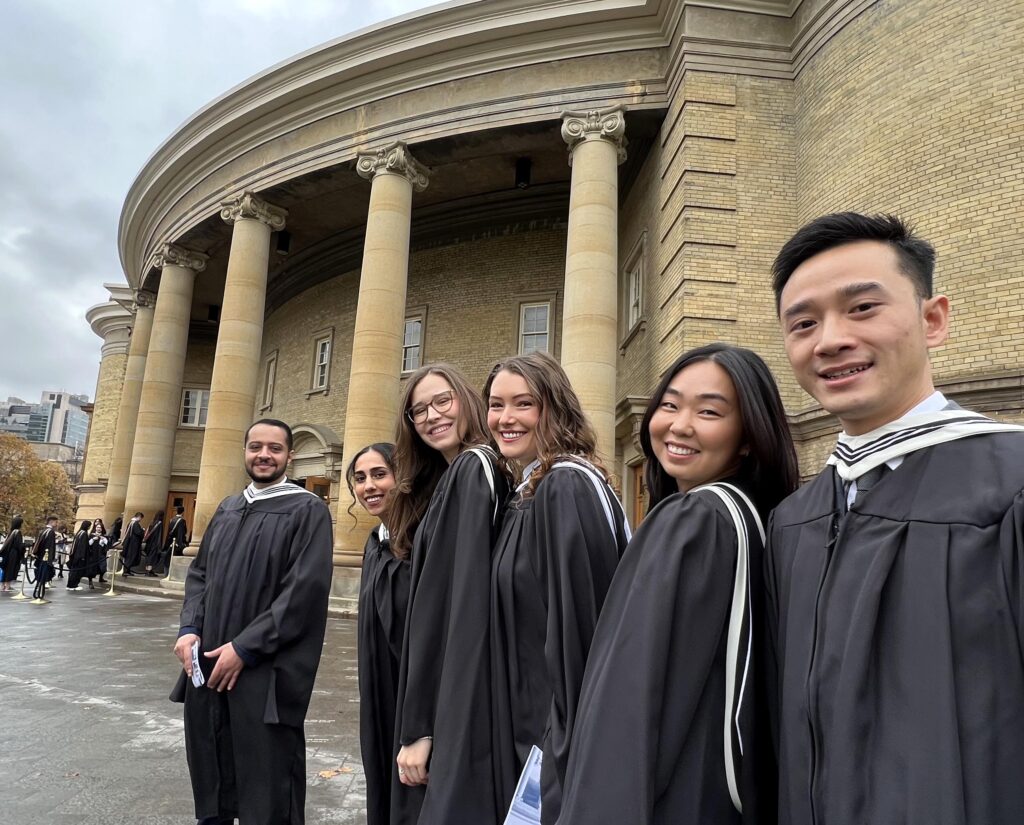
University of Toronto graduates are among the world’s most desirable in the eyes of employers, according to a new ranking by Times Higher Education.
U of T was ranked 12th in the world and the number-one public university in North America in the magazine’s graduate Global Employability University Ranking 2023-2024, which surveys top employers to determine which universities produce graduates with the skills necessary to succeed in the workforce.
The ranking evaluated 250 universities from 44 countries.
“The global demand for University of Toronto graduates reflects the quality of the students we attract and the education we provide,” said U of T President Meric Gertler.
“Our faculty and staff equip students with the knowledge, experience and outlook needed to excel in their careers, drive innovation in their respective fields and make a positive impact in the world.”
Designed by HR consultancy Emerging, the ranking is based on a survey of recruiters and managers from leading companies, most of which have a workforce exceeding 500 employees. This year’s results were based on 100,700 votes cast by 11,560 participants, each of whom can select up to 10 universities.
U of T has consistently ranked among the top 15 globally in the Times Higher Education employability ranking over the past decade, and it held the 11th spot last year.
This year’s edition of the ranking was led by the California Institute of Technology, the Massachusetts Institute of Technology and Stanford University.
Four Canadian universities joined U of T in the top 100: McGill University (31st), University of British Columbia (36th), Université de Montréal (72nd) and McMaster University (85th).
Overall, U of T is ranked first in Canada and among the top 25 universities globally in the five most closely watched international rankings: QS World University Rankings, U.S. News & World Report’s Best Global Universities, Times Higher Education’s World University Rankings, ShanghaiRanking Consultancy’s Academic Ranking of World Universities and National Taiwan University World University Rankings.
By Adina Bresge
This story originally posted by U of T News
Please go here find out more about our Graduate Programs in the Department of Civil & Mineral Engineering.
Meet our new MEngCEM alumna Jessica Dulku. We chatted about her journey at the program, her passion for sustainability and her future career goals.
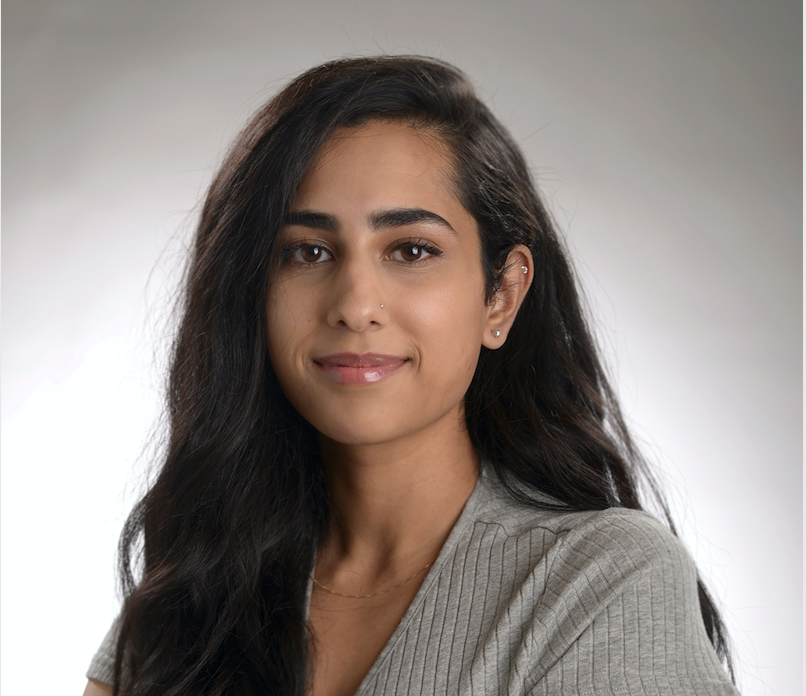
Could you introduce yourself please.
My name is Jessica Dulku and I graduated from the Master of Engineering in Cities Engineering and Management (MEngCEM) program in 2023.
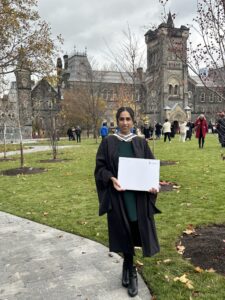
The CEM1002: Data Analytics and Cities had a large project that was split into sections throughout the semester. This project was very helpful in understanding data and how to extract important information. I found this to be an aspect many interviewers were looking for – being able to clean large, messy sets of data and make data visualizations that can be easily interpreted for presentations/reports.
The University of Toronto is known to have excellent engineering schools, with leaders specializing in the topics I am interested in, including sustainability, building science and renewable energy integration. I also found the MEngCEM program description to be unique as it included not only technical courses but also a focus on policy, data analysis, and theories in economics.
My favourite spot to study has to be sitting in the bamboo forest inside the Terrence Donnelly Centre for Cellular and Biomolecular Research. However, if I want a more quiet place to study, you would find me at the upper levels at the Bahen Centre.
I adopted a holistic approach as taught in the MEngCEM program, examining each project and linking it to current events and the challenges cities are facing.
Ride the waves of learning, go with the flow of curiosity, and let your journey take you to unique, extraordinary places.
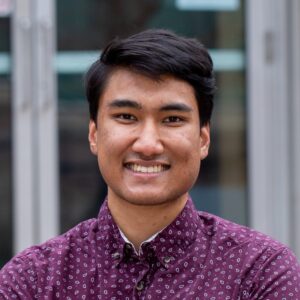
Raymond Bhushan (Year 3, MinE) has been awarded the Okane Consultants Sustainable Mining Scholarship.
Currently he’s on his PEY Co-op with Vale at their South Mine location near Sudbury, Ont. The announcement came via Young Mining Professionals Scholarship Fund (YMPSF).
“I have a couple thoughts about the award,” says Bhushan. “First, I don’t think it would have been possible for me to win it without the lessons I learned in my Mining Environmental Management course (MIN330), since I directly discussed some of those topics in the essay I submitted to Okane. Therefore, I have to give a special thanks to instructors Ryan VanEngen and Michel Julien, and TA Oleksiy Chernoloz.”
Industry must collaborate with stakeholders to create environmentally sustainable projects.
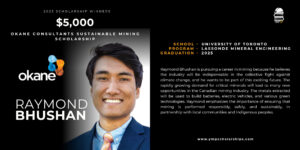
“I’m glad this scholarship exists (thanks to Okane Consultants) because it highlights a crucial aspect of modern mining — sustainability. Mining is absolutely critical in our collective fight against climate change, which is why the industry must collaborate with stakeholders to create environmentally sustainable projects. Indeed, mining companies (in Canada, at least) have begun to adapt sustainability goals, ESG targets, transition to net-zero, etc. I hope in the coming years, more scholarships like this one will be established to encourage and reward future industry leaders who understand why sustainable mining is essential to our society.”
YMPSF was established to help fund and promote mining, and mining-related education, to Canada’s next-generation mining entrepreneurs. The mandate is to attract young people to Canada’s exploration and mining industry by supporting their academic studies in earth sciences post-secondary programs. All of the 2023 scholarship winners have been posted online.
December 12, 2023 | The Toronto Star
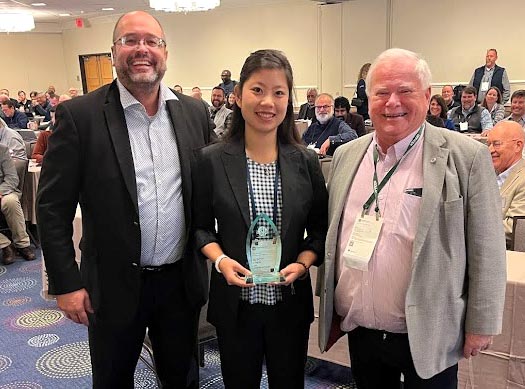
Sandy Chen, a CivMin MASc candidate, was presented with the Katharine and Bryant Mather Scholarship at the ASTM C09 meetings December 3-7 in Washington, D.C. Chen is supervised by CivMin Professor Doug Hooton, who is also Chair of Committee C01 on Cements.
In addition to the scholarship, ASTM covered her travel to attend the cement and concrete standards meetings. According to the ASTM, This scholarship is presented each year, contingent upon available funds, to full-time undergraduate students completing their second/sophomore year of college, or later, or graduate students who are pursuing degrees specializing in cement or concrete materials technology, or concrete construction.
ASTM International, formerly known as American Society for Testing and Materials, is an international standards organization that develops and publishes voluntary consensus technical standards for a wide range of materials, products, systems, and services.
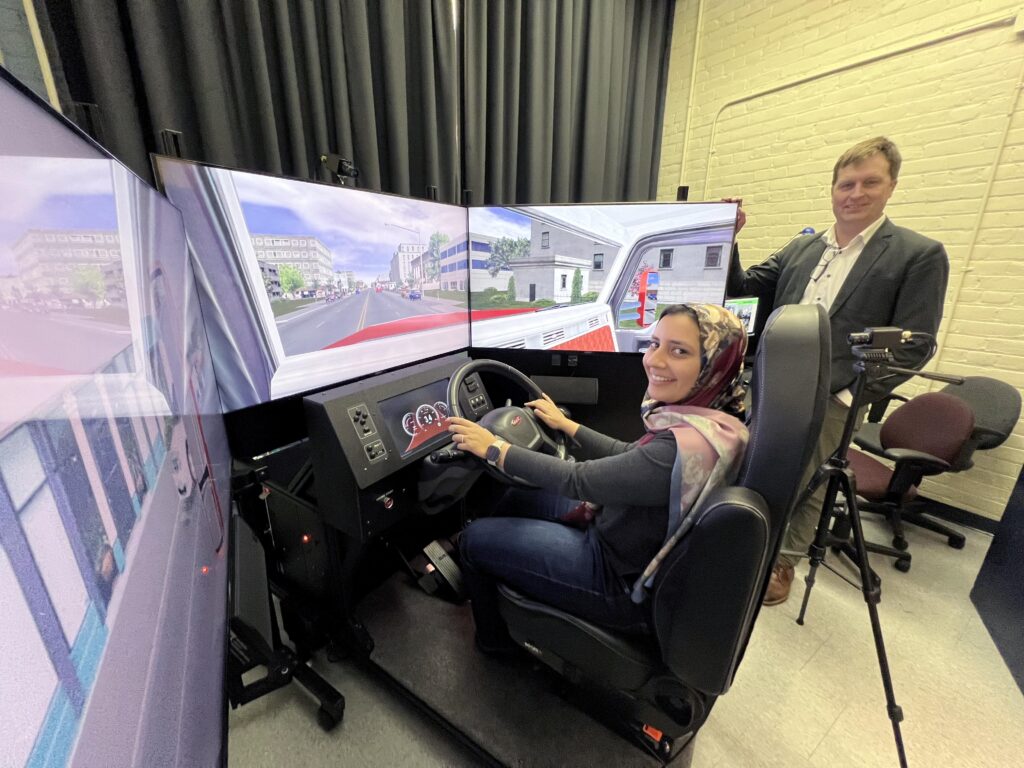
The Smart Freight Centre has just received delivery, and freshly installed, of a quarter-cab truck driving simulator at the University of Toronto. The simulator will allow researchers to discover and analyze ways to improve truck and road safety through truck driver training, testing technological advancements and systems in the truck. The endeavour will prove useful in suggesting potential policy changes and much more.
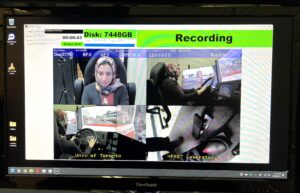
The simulator provides a wide field of view through three 50-inch high-definition monitors, has a real truck driver seat, steering wheel, gear shifter, driving pedals, and dashboard. Additionally, the apparatus includes a motion base that conveys the surface roughness and motion sensations of the vehicle to the driver for a highly realistic driving experience. Users can design and tailor their own driving scenarios using the simulator’s software.
The entire apparatus is mounted on a platform which is able to provide sensations felt while driving and experiencing a variety of road conditions. The steering wheel has “true-to-life” high force feedback, offering the operator sensations and forces much as those experienced while driving a truck.
Four video cameras monitor the operator’s face, hands on the instruments, as well as feet on the brake, gas and clutch. The simulator has both automatic and manual gear-shifting options, with up to 16 gears.
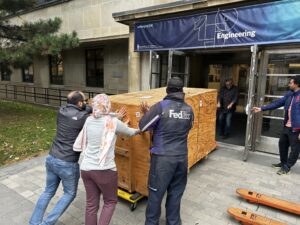
This new installation within the Human Factors and Applied Statistics Laboratory (HFASt) is a collaborative effort involving Prof. Birsen Donmez (MIE) and Prof. Matthew Roorda (CivMin).
The first user is Alia Galal, a CivE PhD candidate, who is developing and testing driver training modules to reduce hazardous interactions between trucks, pedestrians and cyclists.
For more information about the truck simulator, contact CivMin Professor Matthew Roorda.
 Congratulations to Lisa Guseva (Year 4 CivE) for winning a $5,000 TAC Foundation Scholarship.
Congratulations to Lisa Guseva (Year 4 CivE) for winning a $5,000 TAC Foundation Scholarship.
The Transportation Association of Canada (TAC) is a not-for-profit, national technical association focusing on road and highway infrastructure and urban transportation. Their mission is to work together to share ideas, build knowledge, promote best practices, foster leadership, and encourage bold transportation solutions. The award is sponsored by Guild Electric Limited.
